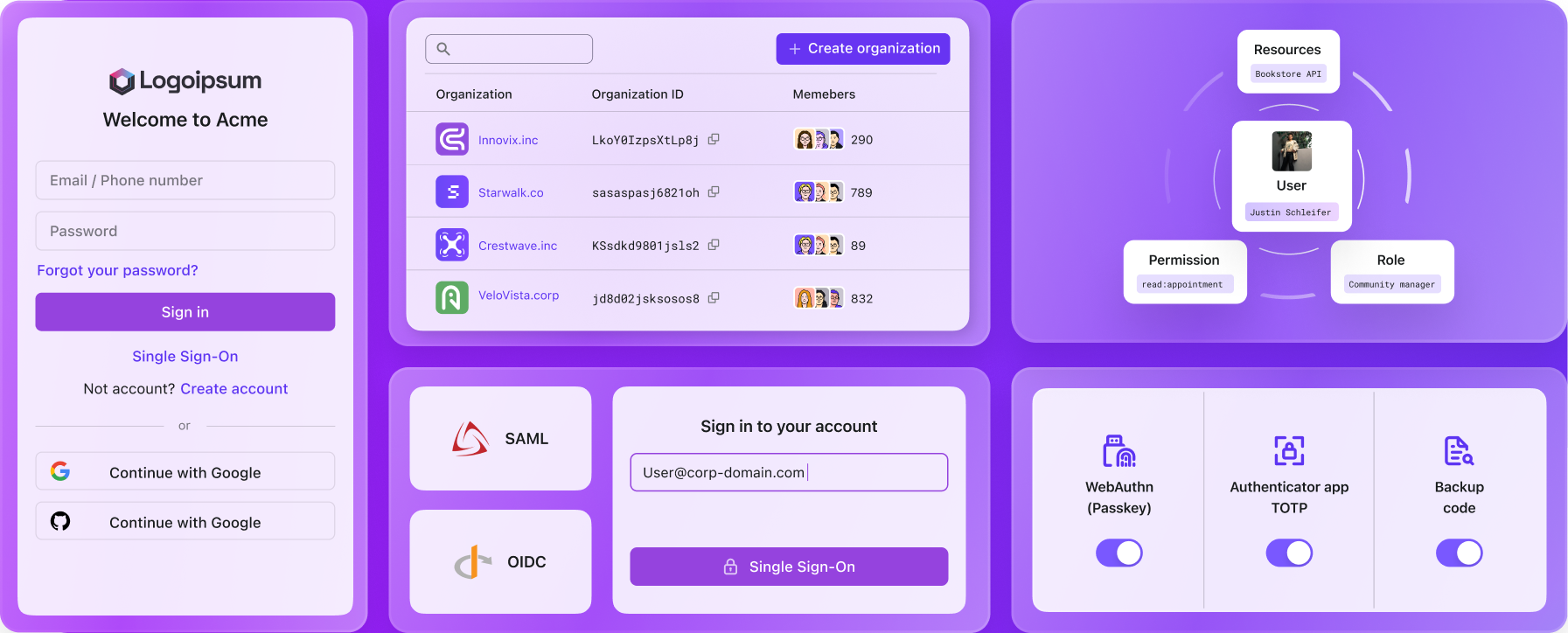When should I use JWTs?
A comprehensive guide on the pros and cons of using JWTs for authentication, with emphasis on auth provider services like Logto.
Ah, JSON Web Tokens (JWTs) - the topic that seems to spark a heated debate in the developer community every few months like clockwork! These little tokens have become quite the popular choice for authentication in modern web apps. But here's the thing: while developers love to argue about their pros and cons, the landscape of authentication is constantly evolving. So, let's cut through the noise and take a balanced look at JWTs. We'll explore when they shine, where they might fall short, and help you figure out if they're the right fit for your project.
Understanding JWTs
JWTs are compact, self-contained tokens used to securely transmit information between parties as a JSON object. They're commonly used for authentication and information exchange in web development.
Key features of JWTs
- Stateless: They don't require server-side storage
- Portable: Can be used across different domains
- Secure: When implemented correctly, they provide robust security
The JWT debate
The controversy surrounding JWTs centers on several key points:
Scalability vs. complexity
Pro: JWTs excel in large-scale, distributed environments.
Con: They can introduce unnecessary complexity for smaller applications.
JWTs are particularly well-suited for systems that need to handle authentication across multiple servers or services. Their stateless nature means that each server can independently verify the token without needing to consult a centralized session store. This makes JWTs an excellent choice for microservices architectures, cloud-based systems, and applications that require horizontal scaling.
Performance
Pro: JWTs can reduce database load by eliminating the need for session lookups.
Con: The performance gain may be negligible for low-traffic applications.
In high-traffic scenarios, JWTs can significantly improve performance by reducing the number of database queries required for authentication. Once a JWT is issued, servers can validate it and extract necessary information without hitting the database. However, it's important to note that for applications with lower traffic or simpler authentication needs, the performance benefits might not be as noticeable, and the added complexity of JWT implementation could potentially outweigh the gains.
Security considerations
Pro: JWTs can be securely implemented, especially with auth provider services.
Con: Incorrect implementation can lead to vulnerabilities if not using a trusted service.
When implemented correctly, JWTs offer robust security features. They can be digitally signed to ensure integrity and optionally encrypted to protect sensitive information. However, it's crucial to recognize that a flawed implementation can introduce serious vulnerabilities. Common pitfalls include using weak signing algorithms, improper key management, or failing to validate tokens properly.
Implementation challenges
Pro: Auth provider services offer simplified, secure JWT implementation. Con: Secure implementation from scratch can be complex and time-consuming.
Leveraging auth provider services can significantly reduce the complexity of implementing JWTs. These services handle intricate aspects such as token signing, validation, and cryptographic key management. They often provide well-documented SDKs and APIs, making it easier for developers to integrate secure authentication into their applications. On the flip side, attempting to implement a JWT system from scratch requires a deep understanding of cryptographic principles, secure coding practices, and potential attack vectors, which can be a daunting and time-consuming task for many development teams.
Auth provider services like Logto have significantly simplified the implementation of JWTs in several ways:
- Simplified setup: They handle the complexities of JWT implementation, making it accessible even for smaller projects.
- Enhanced security: These services implement industry-standard security measures, reducing the risk of vulnerabilities.
- Scalability: They offer solutions that can grow with your application's needs.
- Maintenance: Regular updates and security patches are handled by the service provider.
By using these services, developers can focus on building their core application features while leaving the intricacies of JWT implementation to the experts.
When to use JWTs
JWTs can be particularly beneficial in the following scenarios:
- Microservices architecture: For stateless authentication across multiple services.
- Single sign-on (SSO) systems: Enabling access to multiple applications with one authentication.
- Mobile applications: Efficiently maintaining user sessions across API calls.
- High-traffic applications: Reducing database load in high-volume environments.
- Cross-origin resource sharing (CORS): Simplifying authentication across multiple domains.
- Serverless architectures: Providing stateless authentication where server-side sessions are challenging.
Alternatives to consider
For simpler authentication needs, consider these alternatives:
- Traditional session-based authentication: Often sufficient for smaller applications.
- Token-based authentication with server-side storage: Combines token flexibility with server-side security.
- OAuth 2.0 with opaque tokens: Suitable for delegated authorization scenarios.
- API keys: For simple machine-to-machine authentication.
Making the decision
While JWTs offer powerful capabilities, there are situations where they may not be necessary or even advisable:
- Simple, low-traffic applications: For small projects with minimal authentication needs, traditional session-based authentication might be simpler and more than sufficient.
- Applications with no cross-domain requirements: If your application doesn't need to share authentication across multiple domains or services, JWTs may add unnecessary complexity.
- Projects with limited development resources: Implementing JWTs securely from scratch can be resource-intensive. If you lack the expertise or time, simpler alternatives might be more appropriate.
- Applications with strict security requirements: In some cases, server-side sessions might be preferred for their ability to be immediately invalidated, which isn't natively possible with JWTs.
- Scenarios where token size is a concern: JWTs can be larger than other token types, which might be an issue in bandwidth-constrained environments.
However, it's important to note that with the advent of mature authentication tools and services, implementing JWTs has become much more accessible. Services like Logto provide out-of-the-box JWT support with industry-standard security measures, making it feasible for projects of any size to leverage the benefits of JWTs without the associated complexities.
By using such tools, even smaller projects or those with limited resources can implement robust, scalable authentication systems that can grow with their needs. This approach allows you to focus on your core application logic while benefiting from the flexibility and potential scalability that JWTs offer.

